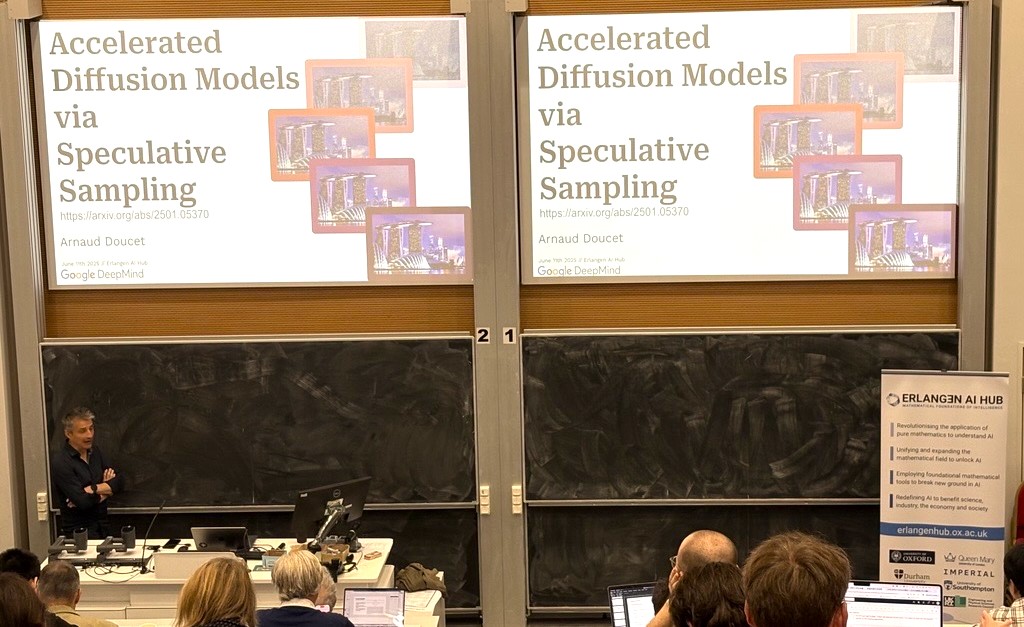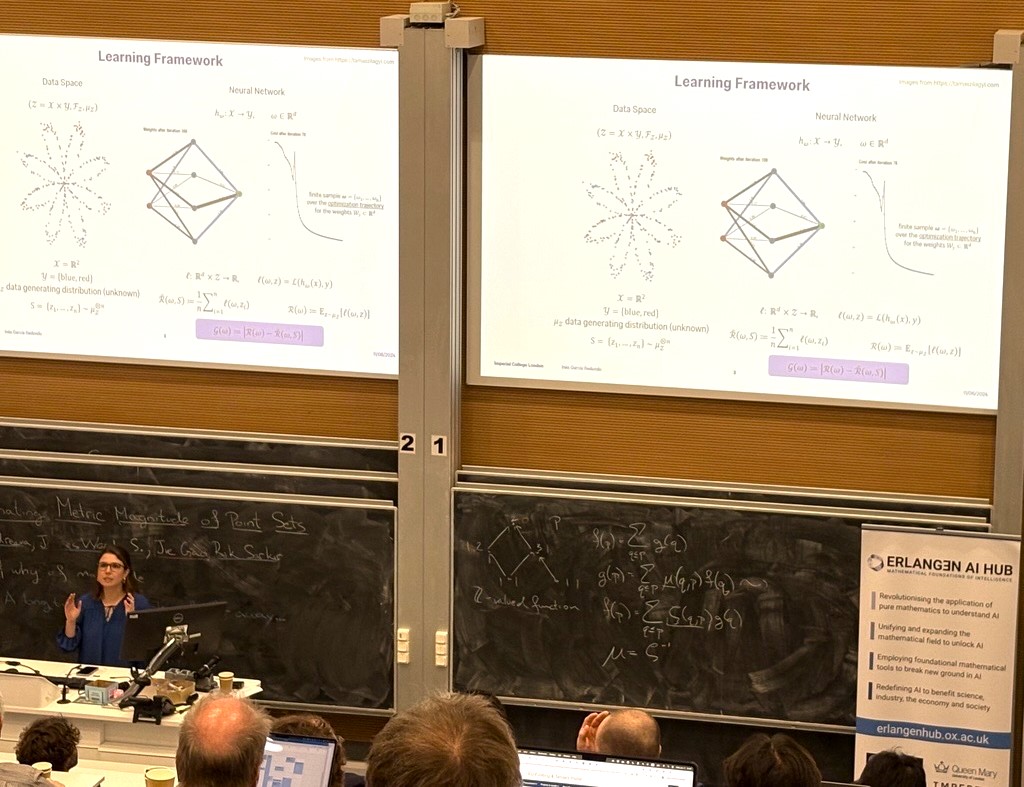Hub’s major conference brings together leading minds at the intersection of mathematics and AI
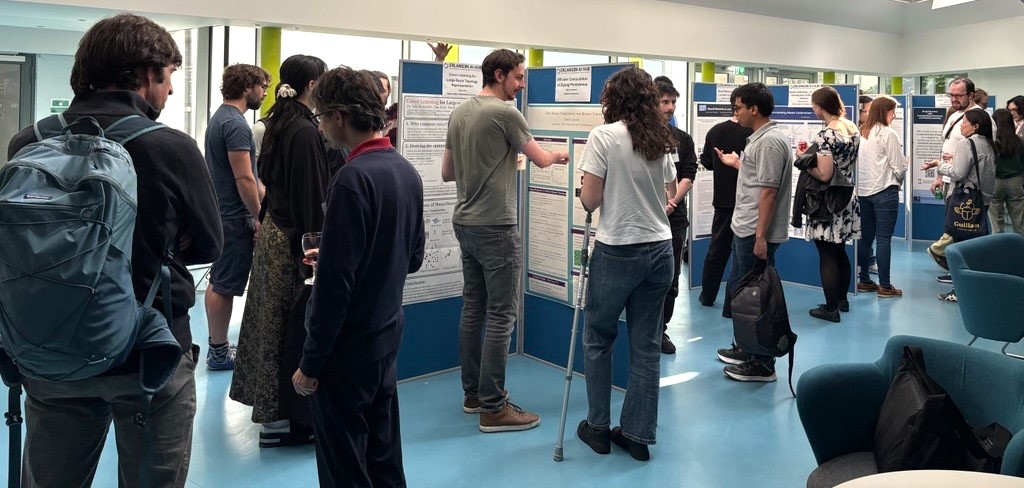
The Erlangen AI Hub Conference took place on 9-11 June 2025 at Queen Mary University of London. It brought together over 100 leading minds from across the UK’s mathematical, algorithmic and computational communities to advance the application of pure mathematics in AI. It formed a key element of our exciting programme that aims to unite and revolutionise the mathematical field to unlock new and improved AI systems.
The conference featured a range of plenary and short talks from high profile speakers across academia and industry, including:
- Kathlén Kohn (KTH Royal Institute of Technology)
- Mark Sandler (QMUL)
- Gesine Reinert (University of Oxford)
- Benjamin Guedj (UCL)
- Jason Smith (Nottingham Trent University)
- Inés García-Redondo (Imperial College London)
- Richard Cooper (Oxford Drug Design)
- Lek-Heng Lim (University of Chicago)
- Michael Bronstein (University of Oxford)
- Marco Cuturi (CREST-ENSAE / Apple)
- Arnaud Doucet (Google DeepMind)
- Rik Sarkar (University of Edinburgh)
- Miguel Rodrigues (UCL)
- Primoz Skraba (QMUL)
Relive the conference as we reported on it in real time below:
Day 1
There was a real buzz as we kicked off the conference at QMUL School of Mathematical Sciences, with an introduction from co-directors Michael Bronstein (Department of Computer Science, University of Oxford), Anthea Monod (Imperial College London), and Jeffrey Giansiracusa (Durham University Department of Mathematical Sciences), and a session from EPSRC’s Senior Portfolio Manager, AI & Robotics, Naomi South.
➕ Fascinating plenary talks
Our plenary speakers on day 1 were Kathlén Kohn of KTH Royal Institute of Technology, who spoke about Neuromanifolds, and UCL’s Benjamin Guedj who presented On Generalisation and Learning.
➕ Short talks
We also heard from Gesine Reinert of Department of Statistics, University of Oxford (Generating and Assessing Synthetic Networks), Imperial Postdoc Sara Veneziale (AI for Pure Mathematics), and Rik Sarkar of the The University of Edinburgh.
➕ Poster reception
The day concluded with a poster reception in the Maths Atrium, where successful poster submissions, judged by our panel, were presented to peers.
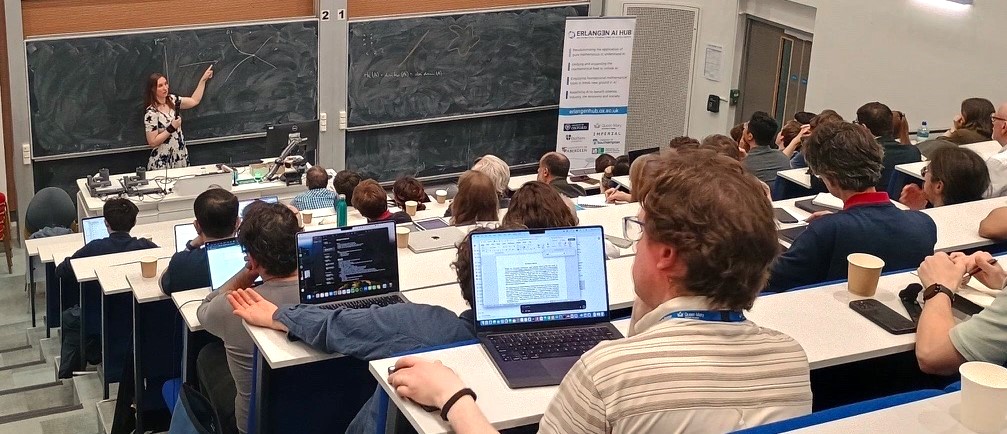
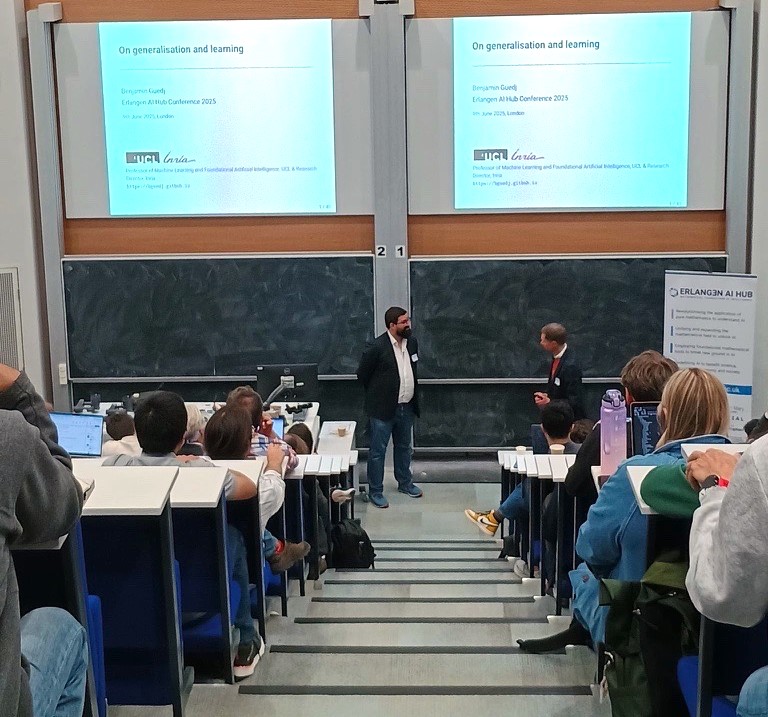
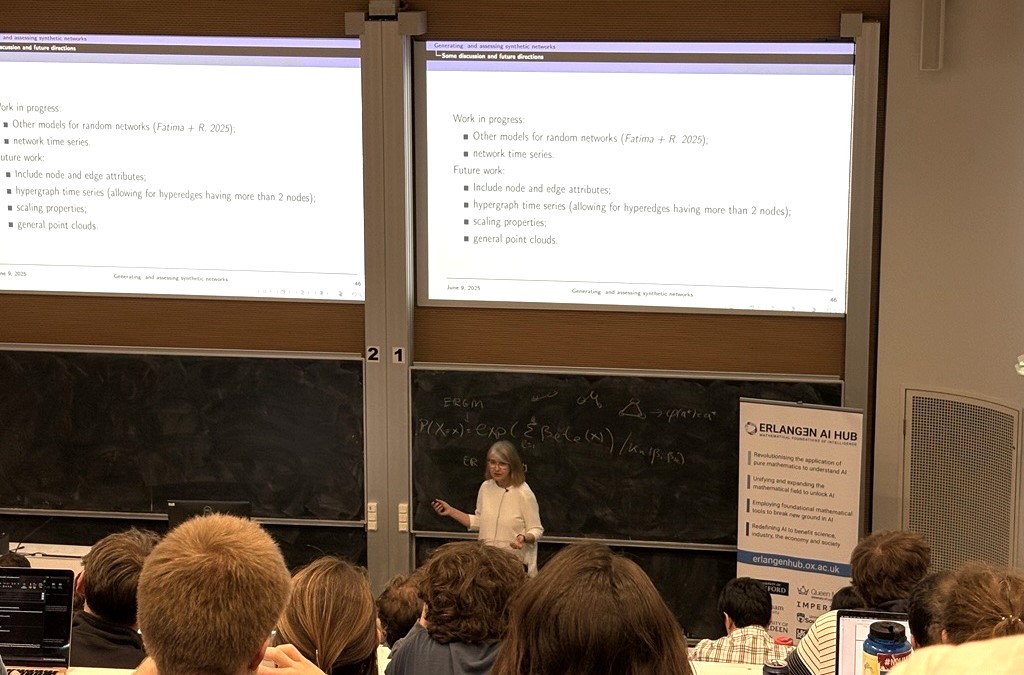
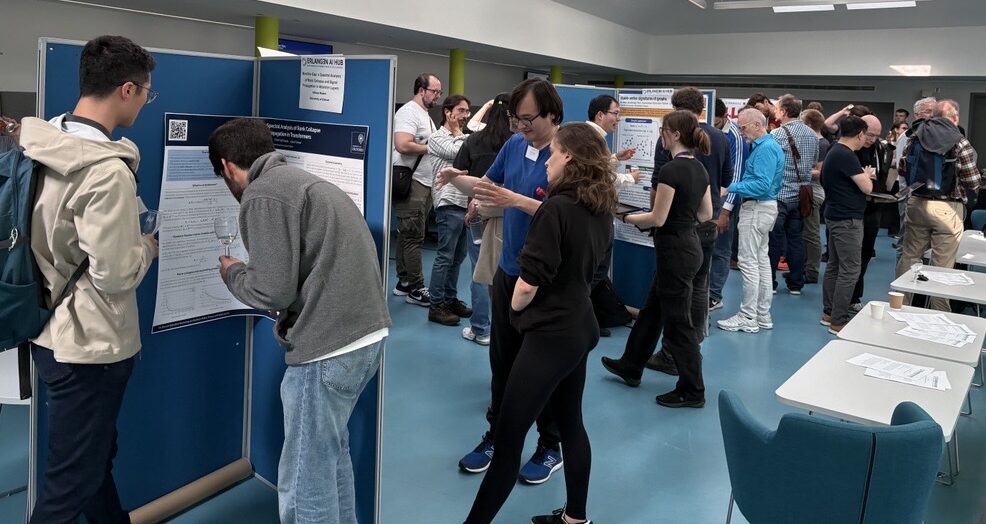
Day 2
Day 2 of the Erlangen AI Hub Conference was dedicated to industry.
Our industry partnerships and commercial links are central to our mission as we work to advance the expertise in and application of mathematics in AI across economy and society.
So, what did day 2 have in store?
➕ Plenary talks
Michael Bronstein (Department of Computer Science, University of Oxford) opened with a talk on Geometric Deep Learning: Quo Vadimus? Marco Cuturi of CREST – Center for Research in Economics and Statistics at ENSAE Paris / Apple later spoke about Optimal Transport and Generative Modeling.
➕ Industry talks
We also welcomed Darryl Hond of Thales to speak about The Challenge of Developing Trustworthy and Assured AI, and Richard Cooper of Oxford Drug Design outlined the Challenges and Opportunities for AI in Preclinical Drug Discovery.
➕ Industry panel
We were delighted to be joined by a stellar industry panel who facilitated a fascinating discussion and shared their perspectives and insights through the lens of various areas of industry. Our panel included Andreas Haggman of Ofcom, Danijela Horak of the BBC, Danica Vukadinović Greetham of Capgemini, and Andrew Paverd of the Microsoft Security Response Center.
➕ Taxonomy for AI Technologies
Tom Coates of Imperial College London spoke about a timely and important Taxonomy for AI Technologies, which is being spearheaded by Peter Grindrod CBE for the hub. Built using simple language, the Taxonomy aims to transform the way industry, government, strategists, the media and beyond understand and engage with AI. Tom’s talk was followed by a highly instructive workshopping session.
➕ Dinner
After a successful day, attendees came together to relax at a dinner in Queen Mary University of London’s stunning Queens’ Building, originally an educational and cultural venue in London known as the People’s Palace.
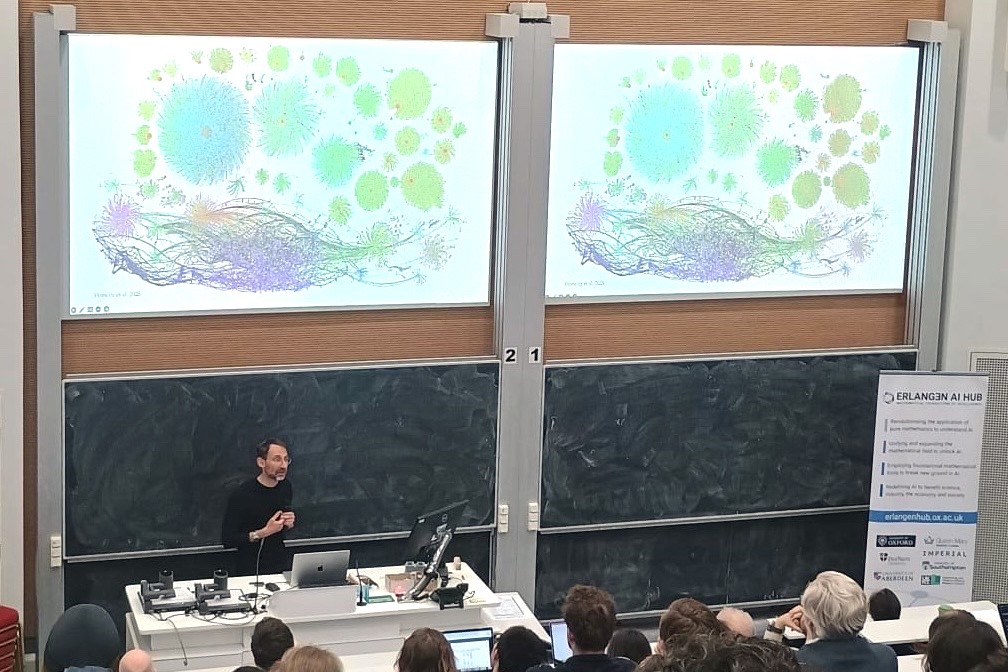
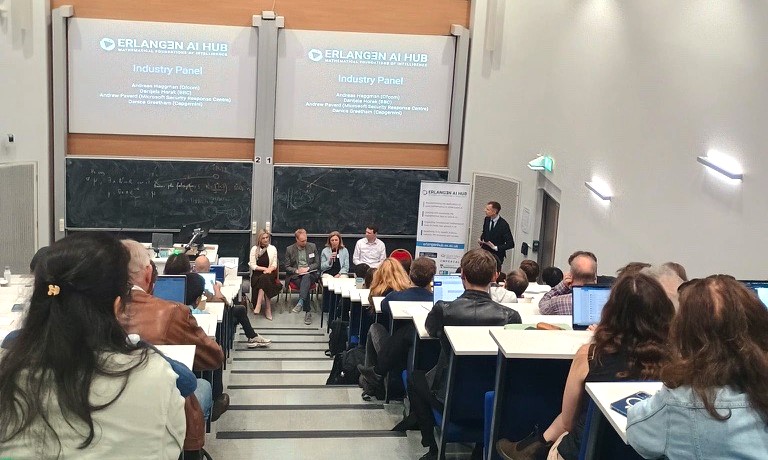


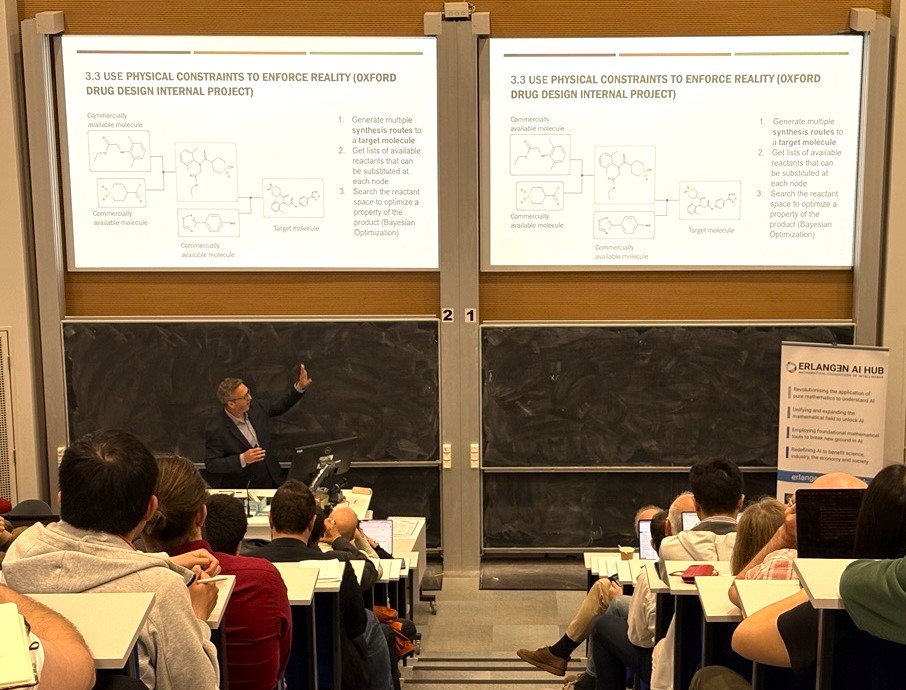
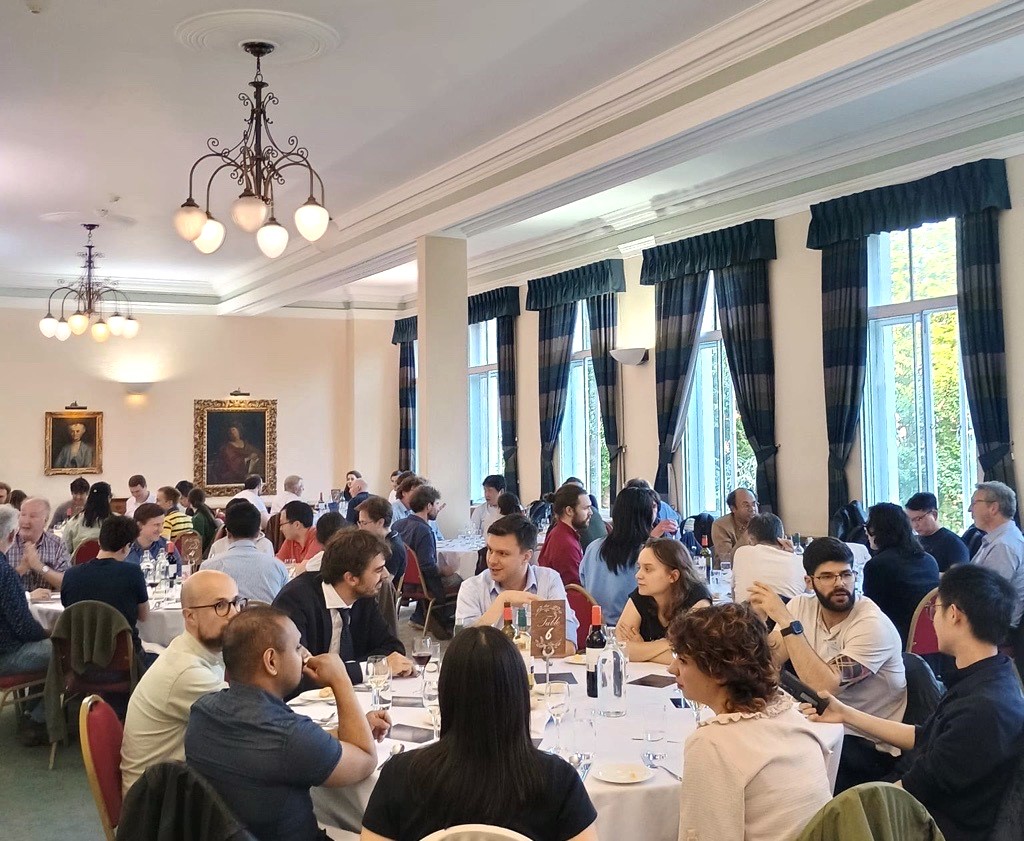
Day 3
We enjoyed the last of a fantastic three days at the Erlangen AI Hub Conference.
We were delighted to have brought together leading minds from across the globe, connecting diverse academic disciplines and institutions, and key industrial stakeholders, collaborating towards a common goal: to examine and transform AI through the powerful medium of mathematics.
We ended on a high with day 3 bringing more fascinating talks, insights and discussions:
➕ Plenary talks
We welcomed Arnaud Doucet of Google DeepMind to speak on Accelerated Denoising Diffusion Models via Speculative Sampling. Mark Sandler of Queen Mary University of London presented The Case for Artificial Neuroscience: Holistic Rigour for Understanding and Engineering Better Deep Learning. Lek-Heng Lim of University of Chicago visited us virtually to speak about Modern AI as the Compositional Approach to Function Approximation.
➕ Short talks
We also heard from Primoz Skraba of Queen Mary University of London (Approximating Metric Magnitude of Point Sets), Miguel Rodrigues of UCL (Safety Certification for Machine Learning Models under Adversarial Attacks), Jason Smith of Nottingham Trent University (Classifying Neural Stimuli on Biological Neural Networks), and Inés García-Redondo of Imperial College London (On the Limitations of Fractal Dimension as a Measure of Generalization).
We are grateful to all our speakers and attendees for joining us and making the conference such an enjoyable, informative, collaborative and inspiring event. We also thank QMUL School of Mathematical Sciences for being wonderful hosts. Here’s to the next one!
